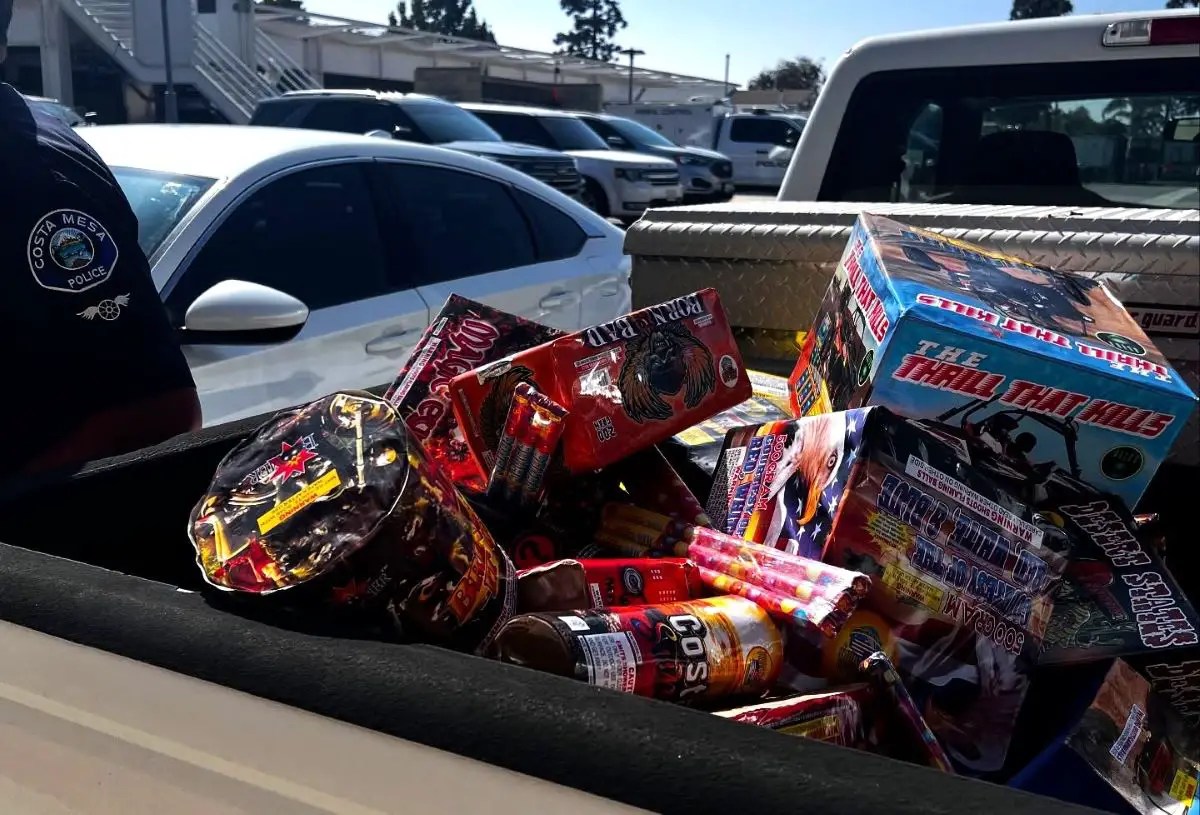
A motor police officer stopped a driver going over 80mph in a 65mph zone on October 7, according to the Costa Mesa Police Department.
When the officer approached the vehicle to issue a speeding ticket, the officer spotted boxes of illegal fireworks, methamphetamine and drug paraphernalia.
You can guess how this worked out for the driver. Here are the penalties and other repercussions that the driver is facing, based on California law and typical enforcement practices:
Speeding (80 mph in a 65 mph zone):
- Infraction under California Vehicle Code § 22349(a)
- Base fine: Around $70, but total cost with assessments and fees can reach $300–$500
- DMV points: 1 point on the driving record (remains for 3 years)
- Possible license suspension if multiple violations occur within a short period
Possession of Illegal Fireworks:
- Misdemeanor under California Health and Safety Code § 12677
- Penalties:
- Fines up to $1,000
- Possible jail time up to 1 year
- Confiscation of fireworks
- Additional penalties if fireworks are deemed dangerous or commercial-grade
Possession of Methamphetamine:
- Misdemeanor or felony under California Health and Safety Code § 11377(a)
- Penalties:
- Misdemeanor: Up to 1 year in county jail and/or fines up to $1,000
- Felony (if prior convictions or aggravating factors): Up to 3 years in state prison
- Drug diversion programs may be available for first-time offenders
Possession of Drug Paraphernalia:
- Misdemeanor under California Health and Safety Code § 11364
- Penalties:
- Up to 6 months in county jail
- Fines up to $1,000
- Possible probation or mandatory drug education
Additional Consequences:
- Vehicle impoundment
- Court appearances required
- Impact on employment, especially if the driver holds a commercial license
- Insurance rate increases
There is no publicly available statistic that directly states what percentage of people caught with illegal fireworks in California are also arsonists. However, here’s what we do know based on California law and enforcement trends:
Key Points:
- Illegal fireworks are often linked to accidental or reckless fires, especially during dry seasons.
- If someone sets off fireworks and causes a fire, they can be charged with arson, even if the fire was not intentional.
- California Penal Code § 451 defines arson as willfully and maliciously setting fire to property, while § 452 covers reckless burning, which does not require intent.
- CAL FIRE’s arson and bomb investigators are often involved in large-scale fireworks seizures, indicating a connection between fireworks enforcement and fire-related crimes.
- In 2025 alone, illegal fireworks were linked to over 1,230 fires and $35 million in property damage.
- Arson charges can result in felony convictions and up to 9 years in state prison if the fire causes significant damage or injury.
Conclusion:
While not all individuals caught with illegal fireworks are arsonists, those who cause fires—whether intentionally or recklessly—can be charged with arson. The overlap exists primarily through the consequences of misuse rather than intent.
The post A speeding O.C. driver with illegal fireworks, meth and drug paraphernalia was busted first appeared on New Santa Ana.
